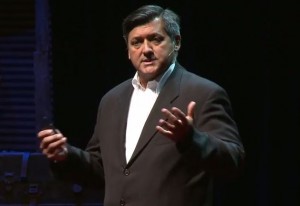San Francisco Treasurer Helps Kindergarteners Get to College
-
-
slice.mit.edu
Filed Under
Recommended
In large part, this was an acknowledgement of Cisneros’s work with the youngest of Americans in San Francisco, where he serves as city treasurer. Launching the city’s Kindergarten to College Program in 2011, Cisneros is credited with helping secure college funding for thousands of children from low-income families.
The program works this way: each fall, as 4,500 new kindergarteners begin school in the city, Cisneros’s office issues them custodial bank accounts in the amount of $50. In the years between kindergarten and college, the student's family can add savings to the account and receive bonuses and matching funds in the process. Families can withdraw from the tax-free account only to pay for tuition and book for the child’s post-secondary education.
"We all know $50 is not going to pay for college," Cisneros told one interviewer. "[But] just the existence of the account builds aspiration in the child's mind."
The program, based in part on research claiming that children with a designated college fund are seven times more likely to eventually attend college, has earned widespread attention. But it has not been easy.
“It was a daunting logistical challenge,” says Cisneros. “Legally, logistically, and functionally. Our initial dream was to open up 529 accounts for students”–a traditional family college-savings account—“but for a number of different reasons that didn’t work.”
In the program’s third year, Cisneros is pleased with the results he already sees. Over 12 percent of families have been contributing regularly to the accounts, achieving incentives and receiving matching funds, which have been provided by private donors.
That’s markedly better than the national average. “A recent study by the General Accounting Office that looked at children’s savings accounts nationwide reported that 3 percent of kids growing up in the USA today have 529 accounts,” says Cisneros.
To date, over 1,500 families in San Francisco have contributed $790,000 of their own funds to the accounts. In a city where 18,000 families don’t even have bank accounts, Cisneros hopes to see at least half of participating families doing contributing.
After selecting Citibank to operate the accounts, which now number more than 13,000, Cisneros says the city also faces a database challenge, one he expects some fellow MIT grads could solve.
“Just to make sure we are being fully accurate, we duplicate all the information for the accounts in our own in-house system,” he says. “So we’ve become a brand new bank account management server, helping families work with the bank much of the time. There’s got to be a better way to go about it.”








